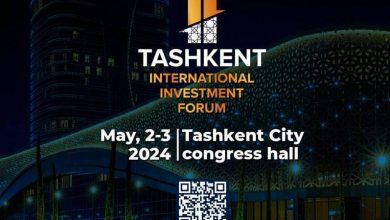Old ways of working will not meet the challenges of the next economy

As the specter of a global economic downturn looms, we hear many CEOs struggling to articulate how they intend to “recession-proof” their companies — without abandoning their growth strategies.
At a recent wealth At the Global Forum in New York, I had the opportunity to speak to fellow CEOs about forecasting what would be a turbulent year and to hear JP Morgan’s Jamie Dimon share his thoughts on the changing economic tides.
For those of us who have been on the gas during several years of macroeconomic hypergrowth, it is important to adapt our business models to compensate for a macroeconomic drain on resources without losing sight of the product and market innovations necessary to remain competitive to stay. To thrive during downturns, leaders must balance what the metrics and data suggest with what our experiences and instincts tell us about running a business efficiently.
As the Founder and CEO of a company that has been working entirely remotely since its inception in 2010 and today has employees in more than 140 countries, I can attest that a commitment to remote working and limitless hiring has been key to our growth in times of both We’ve had our ups and downs. We’ve tested our operating model through several staggering changes and vicissitudes – wage stagnation, recovery, and domestic and international conflicts – and we firmly believe that this isn’t just a novel recipe for success for Toptal. That’s how good companies work.
Correction signals transition, not stagnation
Economists will tell you that a recession is a lagging indicator; We cannot know the length or depth of the valley until we climb out the other side. As CEOs, we know that uncertainty is one of the most precarious business environments to navigate. If you back off too much on major innovations and strategic initiatives, you lose momentum. Carry too many R&D or legacy costs into a downturn with no revenue, and you won’t have the resources to capitalize on opportunities when the recovery begins.
During past downturns, many companies conducted mass layoffs, cut their budgets extensively, and waited for signs of recovery before scaling. However, today’s turmoil is a new kind of correction, with no guarantee that a workforce will be waiting for your paychecks to put them back into play. In the next economy, despite attempts by monetary policy to cool the labor market, there will be no surplus of highly qualified professionals waiting on the sidelines for a salary and a nice view from their cubicles. After this fix, the game is in the hands of the talents — and companies that allow them to work remotely will be their preference.
death of the status quo
At Toptal we manage a network of expertly screened remote talent and communicate with literally thousands of employees around the world every week. What I understand from them is this: The most talented employees don’t come back to the office – ever. They take advantage of their scarcity and embrace personal entrepreneurship. In addition, salary is no longer the main attraction for employees. Today’s talent economy is one of flexibility and autonomy, factors that rival dictators with complete impunity. Try to stop them and you will be knocked out.
With this in mind, the traditional assumption that companies can simply turn the faucet on and off to weather a sales slump is no longer valid. The writing is on the wall: By 2030, there will be a shortage of 30 million people worldwide to fill vacancies.
Already, millions of software developers, IT security professionals and healthcare professionals have vacancies, hampering the performance of our organizations and driving up labor costs. Everywhere, people are paying more and getting less, an unsatisfying trend for business owners and consumers alike. The old ways of working cannot meet the requirements of the future. The next economy will have several new rules.
Trust the results
As we scaled Toptal’s business model from a platform disrupting the global freelance market to the world’s largest fully distributed (officeless) workforce, we had a front row seat to see the next economy.
At this point, every business sector has experienced the efficiency of remote work. Add limitless attitudes to the equation, and companies can both reduce costs and continue to invest in innovation to get their businesses through the valley ahead and back to the top of the mountain.
Distant and boundless talent fuels efficiency and innovation in all times, recession or boom. Companies that embrace limitless attitudes and cultivate a truly performance-oriented mindset without outdated geographic constraints win their industries and prove that working in a completely remote environment is simply superior. They also offer opportunities that go far beyond traditional diversity and inclusion programs and policies, underscoring that this is not only good for business – remote and borderless companies are good for society in ways that traditional companies are nowhere near can offer.
The future of work is a place without the old-fashioned corporate artifacts and regional gatekeeping that led to the inefficiencies and injustices of the past. It is a true meritocracy where the best ideas and the best results win. Where talent wins.
Taso Du Val is co-founder and CEO of Toptal. Toptal is a partner of wealth Global Forum and Davos Dinner Series.
Sign up for the Fortune Features Email list so you don’t miss our biggest features, exclusive interviews and investigations.



